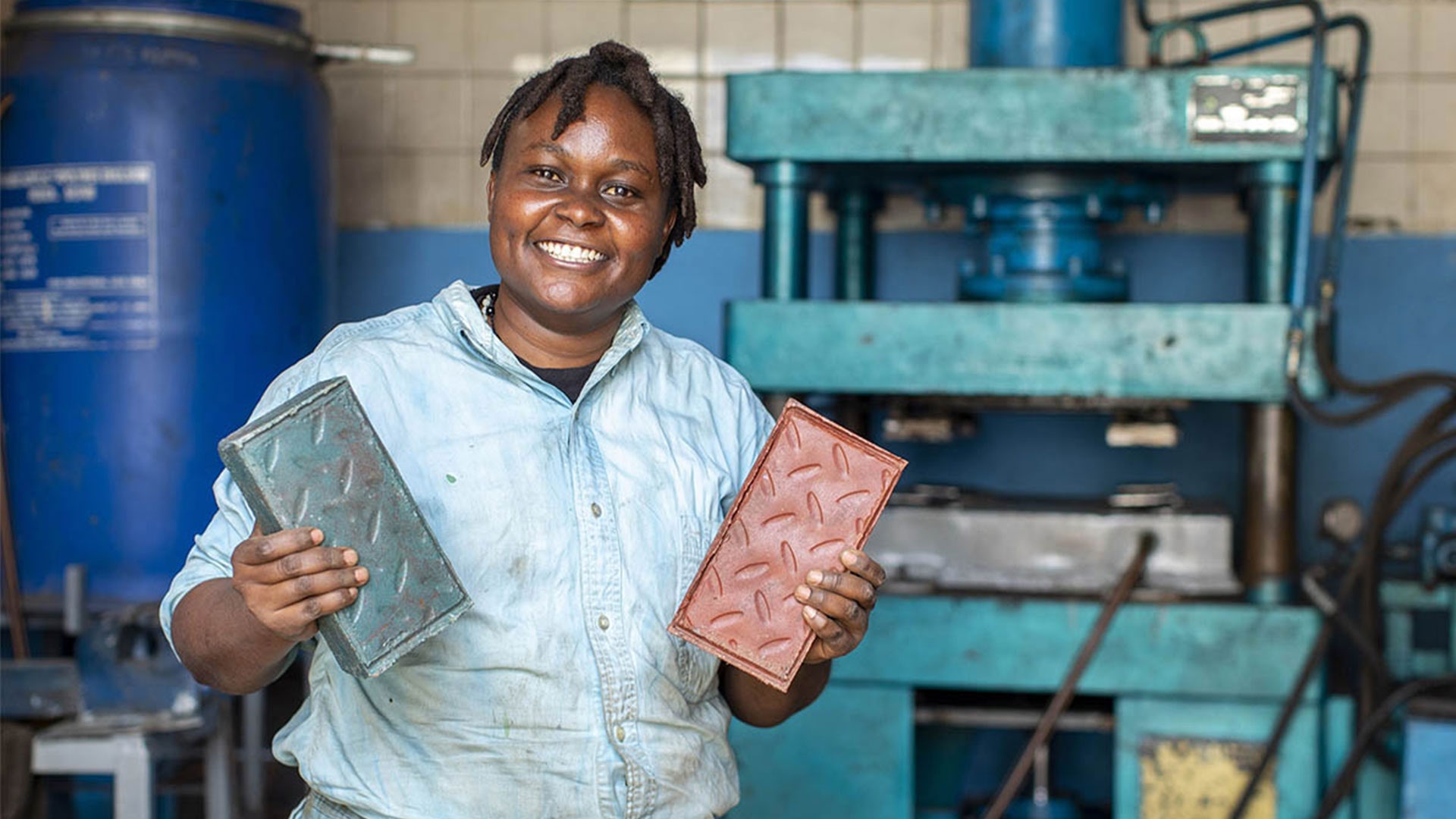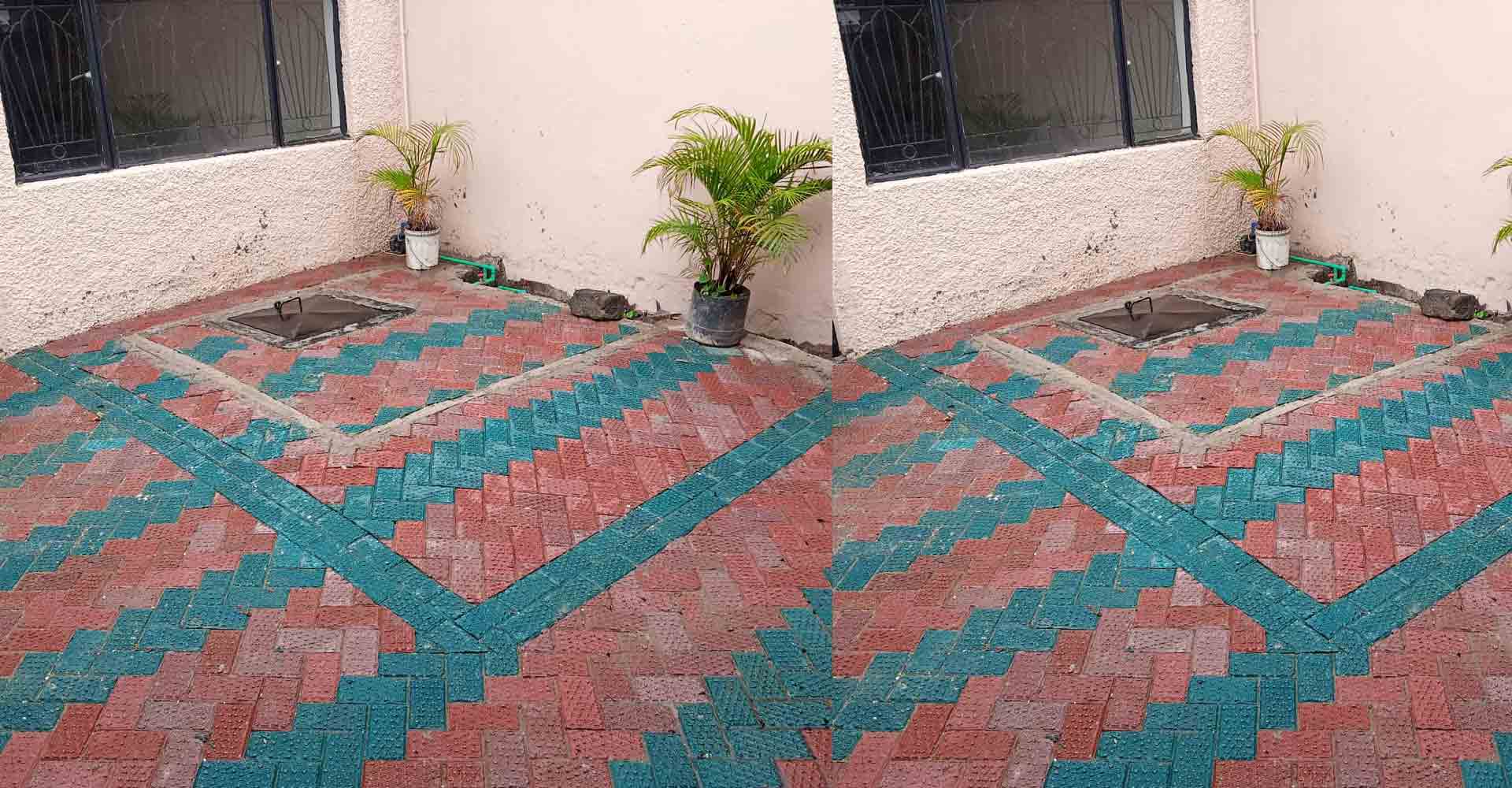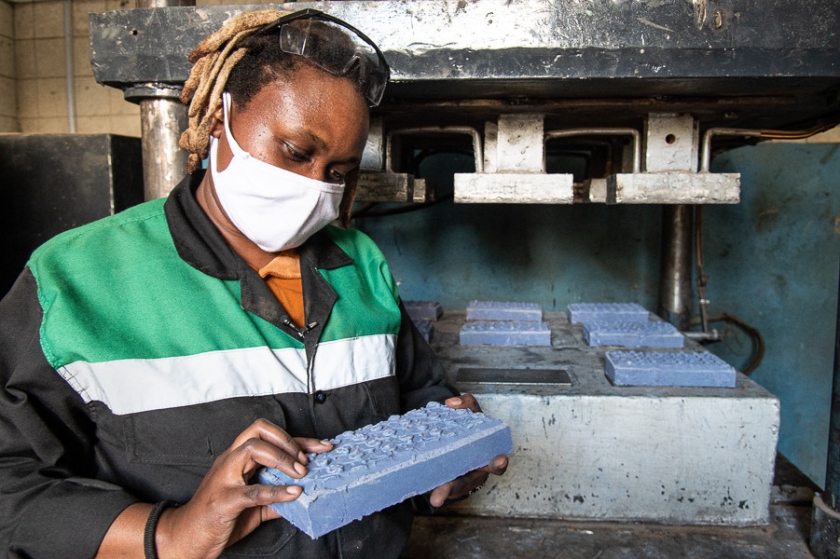
The East African country of Kenya has been at the forefront of the global war on plastic since 2017, when officials outlawed plastic bags. In June 2020, the government upped the ante with a ban on single-use plastics in protected areas. Unfortunately, the preemptive measures have barely made a dent. Hundreds of tons of industrial and consumer polymer waste continue to get dumped into landfills daily. However, if 29-year-old Nzambi Matee has her way, the unsightly plastic heaps will soon be transformed into colorful bricks.
The materials engineer's quest to find a feasible solution to curb plastic pollution began in 2017. She quit her job as a data analyst at a local chemical factory and set up a small lab in her mother's backyard. It took her nine months to produce the first brick and even longer to convince a partner to help build the machinery to make them. But the determined eco-entrepreneur was confident in her idea and did not give up.
She says, “I wanted to use my education in applied physics and materials engineering to do something about the problem of plastic waste pollution. But I was very clear that the solution had to be practical, sustainable, and affordable. The best way to do this was by channeling the waste into the construction/building space and finding the most efficient and affordable material to build homes."

Her company, Gjenge Makers, now hires 112 people and produces over 1,500 bricks a day. The pavers are made using a mix of plastic products — ranging from empty shampoo bottles to buckets to flip-flops — that cannot be reprocessed or recycled. The polymer is obtained directly from factories or picked by hired locals from Nairobi's largest landfill, Dandora.
The collected plastic is mixed with sand, heated at very high temperatures, and compressed into bricks that vary in color and thickness. The resulting product is stronger, lighter, and about 30 percent cheaper than concrete bricks. More importantly, it helps repurpose the lowest quality of plastic. “There is that waste they cannot process anymore; they cannot recycle. That is what we get," Matee says.

Matee, who was recently recognized as one of the Young Champions of the Earth 2020 — the United Nations’ highest environmental honor — is far from done. Her dream is to reduce the mountain of trash in Dandora to just a hill by increasing production and expanding her offerings. She says, "The more we recycle the plastic, the more we produce affordable housing. . .the more we created more employment for the youth."
Resources: Architecturaldigest.com, CNN.com, ecowatch.com
